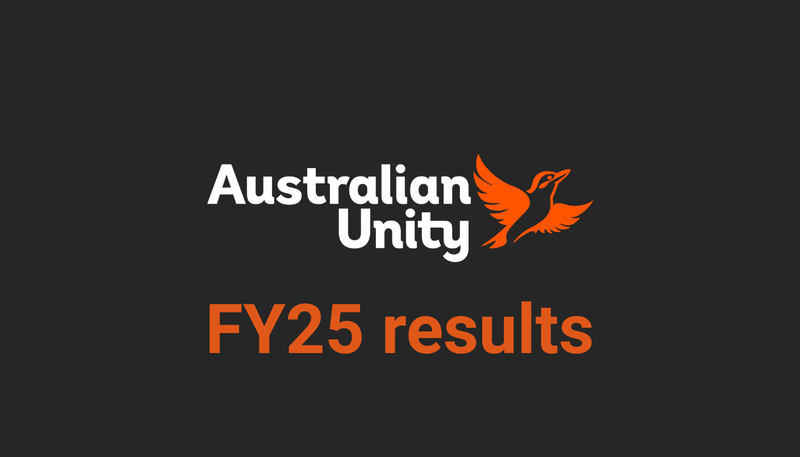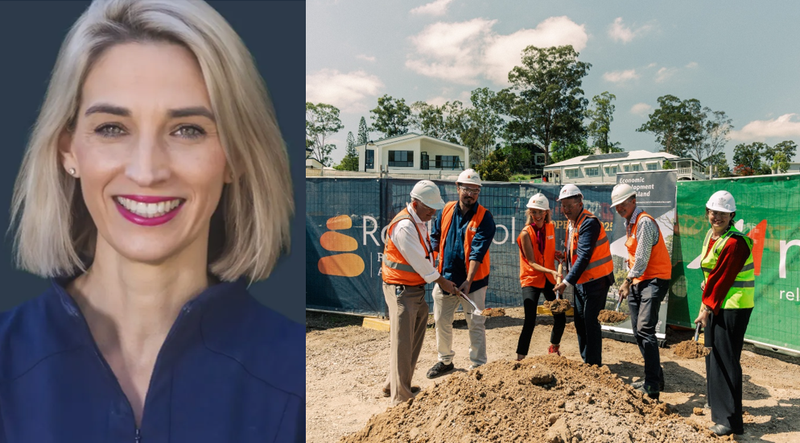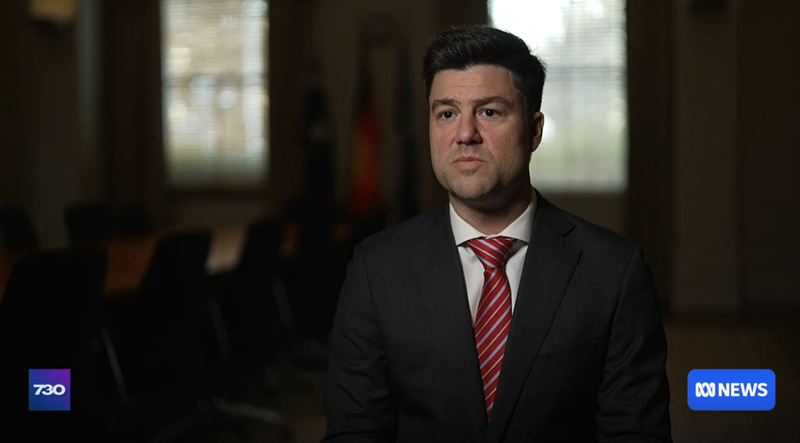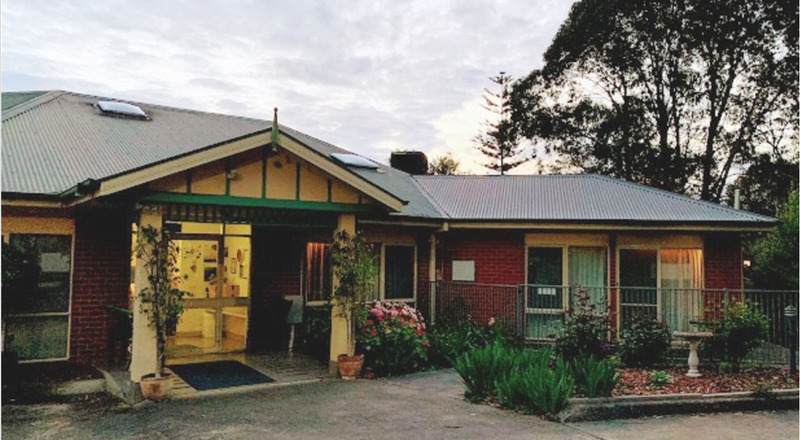Looking at the ‘Big Picture’: Senior Counsel tests idea of system navigators, basic assessments and uncapping supply – as Commissioner Briggs acknowledges providing ‘quality of life’ high risk for Government
Senior Counsel Assisting Peter Gray QC has indicated the Royal Commission will recommend moving to individualised funding for aged care services in Australia in the first session of the workshops on the redesign of the aged care system. For just...
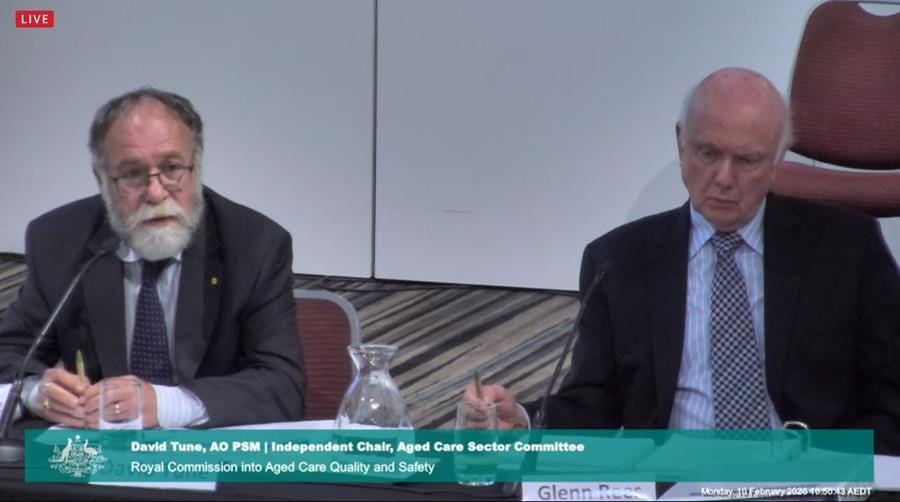
Senior Counsel Assisting Peter Gray QC has indicated the Royal Commission will recommend moving to individualised funding for aged care services in Australia in the first session of the workshops on the redesign of the aged care system.
For just under two hours, Mr Gray raised a number of concerns around the three streams proposed by the Commissioners in their December Consultation Paper 1 with the panelists:
- David Tune, AO PSM – Independent Chair of the Aged Care Sector Committee (and Chair of the 2017 Aged Care Legislated Review)
- Ian Yates AM – Chief Executive of COTA Australia
- Professor Mike Woods – Professor of Health Economics at the Centre of Health Economics and Evaluation at the University of Technology Sydney (and member of the Aged Care Financing Authority)
- Patricia Sparrow – CEO of Aged and Community Services Australia (ACSA)
- Dr Kirsty Nowlan – Co-Chair of Every Age Counts (and Executive Director, Strategic Engagement, Research, and Advocacy at The Benevolent Society)
- Michael Lye – Deputy Secretary of Ageing and Aged Care in the Department of Health
- Robert Bonner – Director of Operations & Strategy at the Australian Nursing & Midwifery Federation (SA Branch)
- Glenn Rees – Chairman of Alzheimer’s Disease International
Mr Gray particularly quizzed the panel on whether a simpler referral process – as suggested in the Consultation Paper for basic services – or a more formal assessment should be required.
With eight witnesses facing the Senior Counsel, hearing all opinions was not always easy – Mr Tune (pictured above left) and Professor Woods (pictured below left) appeared to offer the clearest voices.
Reflecting his views from his 2017 Review, Mr Tune was adamant that an independent assessment process – not a referral system – was needed if supply was to be uncapped – preferably led by a ‘system navigator’.
“It’s one of the great difficulties with the aged care system as it is with the NDIS of people being able to navigate the system including from whoa to go, maybe there’s a broader role for a navigator who can assist people through the process,” he stated.
Commissioner Lynelle Briggs acknowledged the Commission’s idea to have a basic screening process for lower level services may have missed the mark – particularly if the end goal is reablement.
“The submissions we have received for this workshop has been quite helpful and raise, I think, a fundamental issue, which is do we bring issues about restoration, reable to forward in the process around ideally … I would like to do that,” she said. “But if we are to do that, then that suggests that our approach to screening with this lower level initial screening might in fact be wrong and it might be sensible to have comprehensive screening up-front.”
The panel agreed there was still space for a basic referral service, but this needed to be supported by a process to refer people onto more intensive services.
There were also no arguments about providing more face-to-face services to navigate the system – but there was disagreement on who should be in that navigator role.
Unsurprisingly, Ms Sparrow advocated for aged care staff to fill the gap, while – again unsurprisingly – Mr Bonner argued there was a risk for providers to be involved.
The three new service streams including the separation of care from accommodation were also contested by some members of the panel.
Mr Yates (pictured above right) pointed out that the word ‘entry’ is confusing – because many older people require basic services, but may also have quite complex medical conditions.
“Our suggestion was actually that you have care and support that covers basic and more complex sets of services,” he explained. “And you can fund those basic and other services differently, if you like, but for the consumer, for the person needing, they have to be one set of potential services.”
There was also debate around the ‘investment’ stream to fund reablement and restorative care and respite.
Mr Rees (pictured top right) was the bluntest.
“The investment stream offends every principle that I have in terms of system design,” he stated.
He instead argued for a low intense/high intense stream with a separate stream to fund respite.
This had some support from Mr Tune, who reiterated the point of moving to a system with a true continuum of care with perhaps one of the comments of the day.
“What we are doing here is in effect resetting up what we have got at the moment in a different variation of it,” he said. “And it just worries me that we are going to perpetuate some of the problems we have got in the system if we don’t think about it more broadly. For example, the entry level of care that we have moved on from, I’m really worried about the boundary between that and care itself. It’s very blurred and whilst I appreciate that people can receive assistance under all three levels of all three streams, I think it’s just creating boundary issues that are not necessary, in effect. If we think about just one big system with various components and various intensities as Mr Rees has said, I think we might be getting somewhere.”
Commissioner Briggs had her own take-away from the discussion which suggested she too is looking at the bigger picture – and how you can create an aged care system that provides both reablement and quality of life.
“I think the key issue for me is that you have all acknowledged that reablement is significantly under done in the current system and what we were trying to do was to say that was the case but I appreciate what you are saying. More radical versions of this going to Ms Nowlan’s conversations about quality of life would take you to what’s occurring in the UK at the moment through the national health system where the first question is to an older person given the high level of depression and concern and so on is ‘what would make you happy?’ And that’s quite different from any of the services that any of you have talked about or currently exist within this system. Now that’s a high-risk area for an Australian Government to venture to but does that make sense?” she added, to a round of nods.
Commissioner Tony Pagone went ‘off topic’ too, throwing in a ‘big picture’ question about Japan’s system of funding long-term aged care through social insurance.
“We have got a little bit like that with the superannuation guarantee fund,” he noted. “Do any of you want to say anything about that at this stage?”
The question was met by slightly stunned silence until Mr Yates found his voice.
“Commissioner, that’s a big conversation,” he started off. “Yes, we think that that conversation ought to be had. And there are two venues, one is this Royal Commission and the other actually is the current retirement income review that the government has underway. It is about how you effectively finance needs in later life, which is in part what our, well is very much what other overall retirement income system is designed to do.”
Mr Tune also piped up, agreeing that social insurance was a valid way to finance the system, but would need to be a long-term project.
“You are talking something like a 30, 40-year transition to get there,” he added. “But that’s not to say it should be off the table but it’s worth thinking about in that context as well.”
Noting that the system being proposed in the Consultation Paper requires aged care supply to be uncapped, Mr Gray ended with a question to the panel on what would be required to get there.
Here, it was the Department of Health representative Michael Lye who had the answer, saying it would require a robust assessment process and data about the underlying demand for services; a consistent means testing system; and guarantees to ensure people with similar needs are receiving similar levels of services.
“I think you need all of those things if you’re going to have a system like that,” he concluded.
Will we see all three targets in the Commissioners’ final recommendations then?


